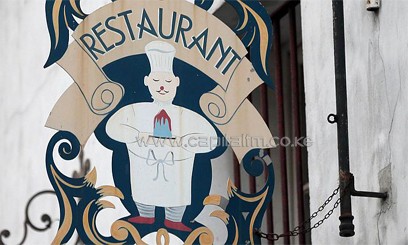
France is considering banning establishments from calling themselves restaurants if meals are not made from scratch by in-house chefs/AFP
PARIS, June 2013 – Worried its gastronomic reputation is being damaged by substandard eateries, France is considering banning establishments from calling themselves restaurants if meals are not made from scratch by in-house chefs.
The move, backed by the Synhorcat restaurant union and a group of lawmakers, aims to crack down on the proliferation of restaurants serving boil-in-a-bag or microwaved ready meals as restaurant-quality cuisine.
But the proposal is facing resistance from some restaurant owners, who fear it will hurt the industry by driving up costs and are warning of major job losses.
The proposal, from lawmaker Daniel Fasquelle of the right-wing opposition UMP, is to be put to parliament this month as an amendment to a new consumer-rights bill.
It would limit the right to use the term restaurant to eateries where food is prepared on site using raw materials, either fresh or frozen. Exceptions would be made for some prepared products, such as bread, charcuterie and ice cream.
The proposal comes after a Synhorcat study found that 31 percent of French restaurants are now serving industrially prepared food products instead of their own cooking. And experts suspect many more restaurants are using industrial food but not admitting it.
Alain Fontaine, owner of Le Mesturet restaurant in central Paris, said the distinction is an important one.
“It means that we have chefs who develop recipes and prepare them, unlike those who have taken the decision to cut open bags and reheat,” he said.
Those behind the proposal are hoping to emulate a 1995 law that limited the use of the term bakery to establishments that prepared bread and pastries from scratch. That law is widely seen as having given a boost to traditional bakers.
But six other restaurant groups last week declared their “massive opposition” to the move.
Led by the UMIH, the main association of restaurant owners, opponents said the proposal would “create complete confusion with the public, clients and especially foreign tourists”.
They said it would have “drastic consequences in terms of employment, especially for youth,” with about a quarter of France’s restaurant workers under the age of 25.
The group suggested that France instead create a new category of “artisanal restaurant” to highlight those which prepare food from scratch.
The proposal is only one of several recent attempts to address what many see as the declining standards of France’s famed restaurants.
In April the College Culinaire de France — a 15-member industry group founded by the country’s leading chefs launched a new “quality restaurant” label awarded to eateries that meet top cooking and service standards.
The culinary group which counts members such as Alain Ducasse, Joel Robuchon and Guy Savoy will grant the label to deserving restaurants and make sure standards are maintained through online client surveys.
Many websites are also cropping up in France to advise consumers on restaurants where food is prepared in-house, such as restaurantsquifontamanger.fr, set up last year by food-lover Alain Tortosa.
“There are chefs of all ages who want us to distinguish them from their competitors,” he said. “They say ‘I get to my kitchen at 7:00 am and they have a delivery truck that arrives at 11:00’.”
Fast food and take-aways last year accounted for 54 percent of the French market, or 34 billion euros ($44 billion) in sales, for the first time outselling traditional sit-down meals with table service.


































